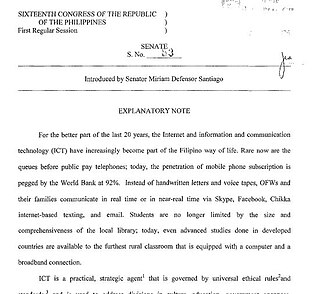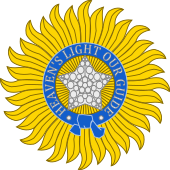
Trade secrets are a type of intellectual property that includes formulas, practices, processes, designs, instruments, patterns, or compilations of information that have inherent economic value because they are not generally known or readily ascertainable by others, and which the owner takes reasonable measures to keep secret. Intellectual property law gives the owner of a trade secret the right to restrict others from disclosing it.

The USA PATRIOT Act was a landmark Act of the United States Congress, signed into law by President George W. Bush. The formal name of the statute is the Uniting and Strengthening America by Providing Appropriate Tools Required to Intercept and Obstruct Terrorism Act of 2001, and the commonly used short name is a contrived acronym that is embedded in the name set forth in the statute.

The Espionage Act of 1917 is a United States federal law enacted on June 15, 1917, shortly after the United States entered World War I. It has been amended numerous times over the years. It was originally found in Title 50 of the U.S. Code but is now found under Title 18. Specifically, it is 18 U.S.C. ch. 37.

Classified information is material that a government body deems to be sensitive information that must be protected. Access is restricted by law or regulation to particular groups of people with the necessary security clearance and need to know. Mishandling of the material can incur criminal penalties.
A security clearance is a status granted to individuals allowing them access to classified information or to restricted areas, after completion of a thorough background check. The term "security clearance" is also sometimes used in private organizations that have a formal process to vet employees for access to sensitive information. A clearance by itself is normally not sufficient to gain access; the organization must also determine that the cleared individual needs to know specific information. No individual is supposed to be granted automatic access to classified information solely because of rank, position, or a security clearance.

The Computer Fraud and Abuse Act of 1986 (CFAA) is a United States cybersecurity bill that was enacted in 1986 as an amendment to existing computer fraud law, which had been included in the Comprehensive Crime Control Act of 1984. Prior to computer-specific criminal laws, computer crimes were prosecuted as mail and wire fraud, but the applying law was often insufficient.

An Official Secrets Act (OSA) is legislation that provides for the protection of state secrets and official information, mainly related to national security but in unrevised form can include all information held by government bodies.

The Privacy Act of 1974, a United States federal law, establishes a Code of Fair Information Practice that governs the collection, maintenance, use, and dissemination of personally identifiable information about individuals that is maintained in systems of records by federal agencies. A system of records is a group of records under the control of an agency from which information is retrieved by the name of the individual or by some identifier assigned to the individual. The Privacy Act requires that agencies give the public notice of their systems of records by publication in the Federal Register. The Privacy Act prohibits the disclosure of information from a system of records absent of the written consent of the subject individual, unless the disclosure is pursuant to one of twelve statutory exceptions. The Act also provides individuals with a means by which to seek access to and amendment of their records and sets forth various agency record-keeping requirements. Additionally, with people granted the right to review what was documented with their name, they are also able to find out if the "records have been disclosed" and are also given the right to make corrections.

The Official Secrets Act of 1923 is India's anti-espionage act held over from the British colonial period. It states clearly that actions which involve helping an enemy state against India are strongly condemned. It also states that one cannot approach, inspect, or even pass over a prohibited government site or area like an electrical substation. According to this Act, helping the enemy state can be in the form of communicating a sketch, plan, model of an official secret, or of official codes or passwords, to the enemy.

The Economic Espionage Act of 1996 was a 6 title Act of Congress dealing with a wide range of issues, including not only industrial espionage, but the insanity defense, matters regarding the Boys & Girls Clubs of America, requirements for presentence investigation reports, and the United States Sentencing Commission reports regarding encryption or scrambling technology, and other technical and minor amendments.
The United States government classification system is established under Executive Order 13526, the latest in a long series of executive orders on the topic of classified information beginning in 1951. Issued by President Barack Obama in 2009, Executive Order 13526 replaced earlier executive orders on the topic and modified the regulations codified to 32 C.F.R. 2001. It lays out the system of classification, declassification, and handling of national security information generated by the U.S. government and its employees and contractors, as well as information received from other governments.
Title V: Removing obstacles to investigating terrorism is the fifth of ten titles which comprise the USA PATRIOT Act, an anti-terrorism bill passed in the United States after the September 11, 2001 attacks. It contains 8 sections regarding the capture and prosecution of terrorists.
Title 18 of the United States Code is the main criminal code of the federal government of the United States. The Title deals with federal crimes and criminal procedure. In its coverage, Title 18 is similar to most U.S. state criminal codes, which typically are referred to by names such as Penal Code, Criminal Code, or Crimes Code. Typical of state criminal codes is the California Penal Code. Many U.S. state criminal codes, unlike the federal Title 18, are based on the Model Penal Code promulgated by the American Law Institute.
Classified information in the United Kingdom is a system used to protect information from intentional or inadvertent release to unauthorised readers. The system is organised by the Cabinet Office and is implemented throughout central and local government and critical national infrastructure. The system is also used by private sector bodies that provide services to the public sector.
Information sensitivity is the control of access to information or knowledge that might result in loss of an advantage or level of security if disclosed to others.
The National Information Infrastructure Protection Act was Title II of the Economic Espionage Act of 1996, as an amendment to the Computer Fraud and Abuse Act.
The Personal Data Privacy and Security Act of 2009, was a bill proposed in the United States Congress to increase protection of personally identifiable information by private companies and government agencies, set guidelines and restrictions on personal data sharing by data brokers, and to enhance criminal penalty for identity theft and other violations of data privacy and security. The bill was sponsored in the United States Senate by Patrick Leahy (Democrat-Vermont), where it is known as S.1490.
Cyber crime, or computer crime, refers to any crime that involves a computer and a network. The computer may have been used in the commission of a crime, or it may be the target. Netcrime refers, more precisely, to criminal exploitation of the Internet. Issues surrounding this type of crime have become high-profile, particularly those surrounding hacking, copyright infringement, identity theft, child pornography, and child grooming. There are also problems of privacy when confidential information is lost or intercepted, lawfully or otherwise.

The Magna Carta for Philippine Internet Freedom is an internet law bill filed in the Congress of the Philippines. The bill contains provisions promoting civil and political rights and Constitutional guarantees for Philippine internet users, such as freedom of expression, as well as provisions on information and communications technology (ICT) policy, ICT4D, internet governance, e-governance, cybersecurity, cyberwarfare, cyberterrorism, and cybercrime.
The German Law on the Protection of Trade Secrets, or Trade Secrets Law in short, serves to protect business secrets against unauthorized acquisition, use, and disclosure. The law implements the Directive (EU) 2016/943 on the Protection of Trade Secrets in German law. It replaces the right to secrecy, which was previously regulated in §§ 17-19 of the Act Against Unfair Competition.






